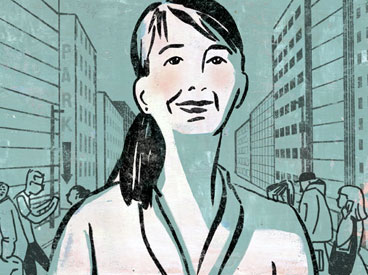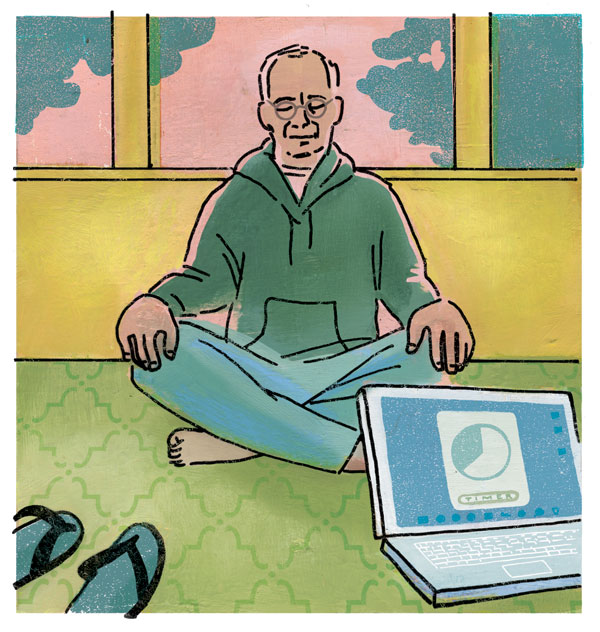O’Neal, 62, tells of the patience required to take advantage of solitude’s opportunities, and she’s fond of the admonition of Thomas Merton, a 20th century Trappist monk who has influenced many modern hermits, that “the door to solitude only opens from the inside.” She converted to Catholicism soon after high school and, after entering the Franciscans, struggled with an intractable adult-onset seizure disorder. Then she left the Franciscans, studied for degrees in theology, and worked as a hospital chaplain. After she joined another community of nuns, her seizures continued troubling her life. “I needed a context that allowed my entire life to make sense, including my own brokenness, giftedness, talents, and training,” she says. “I was becoming more contemplative, and I was considering living a contemplative life.”
When the Church’s code of canon law changed in 1983, allowing dioceses to profess and consecrate solitary hermits, O’Neal realized the solitary life was exactly what she needed. She tried living as a hermit for several years, sought diocesan approval, and finally in 2007 was perpetually professed as a diocesan hermit.
O’Neal’s hermitage is a simple one-bedroom apartment. In her bedroom she has set up a private chapel, where she has Eucharist reserved and does most of her praying. “Nobody goes in there except me,” she says. The rest of the hermitage, which includes a private meeting area for spiritual direction with her clients, “is pretty normal.” Like most modern hermits, O’Neal is connected to the outside world by phone and computer.
Such remote and face-to-face connections do not diminish the power of the contemplative time hermits spend alone. “We tend to think of old stories of people in caves with no contact with the outside world,” Cunningham says. “Those stories were probably never true to begin with. People were often surprised that I would go into town and deal with the bank, grocery stores, and the library, and that I’d take in food to sell at the farmer’s market.” Social experiences did not take away from the benefits he found other times in being alone, living in the moment.
O’Neal encounters similar perplexity. “Many people I meet ask me how a hermit can play in an orchestra or go to mass, or even how one can have a sense of humor. Few realize that this is a vital and richly human way of living—one that’s personally demanding and fulfilling, yet also quite rare. Even so it needs to be made known to more people as a positive, even redemptive vocation, including those with chronic illnesses, the isolated elderly, and prisoners, but we can’t do that if we’re caught up in the stereotypes,” she says.
Instead of those stereotypes, hermitic life requires a temperament that can let go of the world’s expectations and one’s own craving to make a mark on society. “Your self-discipline has to be mature—there’s nobody to tell you it’s time to pray or write or that you should have been in bed hours ago,” O’Neal says. Just as important is the ability to discover and stay in touch with a transcendent motivation to do what the rest of the world finds unimportant or absurd. “You have to live without a lot of external gratification. There’s not much outside validation in being a hermit.”
That doesn’t mean hermit life is unpleasant. “For me it was like a vacation, not at all difficult,” says Cunningham, who has always enjoyed solitude. He decided to end his hermit existence when his nonprofit work grew too demanding, and he again felt the longing to travel. He now lives alone on a 20-foot boat, based in Key West in the winter. In the summer, he sails around New England. He still has plenty of solitude, but the intensity of his spiritual Zen practice has lessened.
The attraction of hermit life, Karen Fredette says, “always flares up when the world is in turmoil. Hermits are at the hub of a whirling wheel, and they help to hold civilization together.” Maybe we need hermits now more than ever.
VIDEO: See how this story inspires Post staff to search for ways to unplug in a busy world.
Illustrations by Hadley Hooper
Become a Saturday Evening Post member and enjoy unlimited access. Subscribe now




